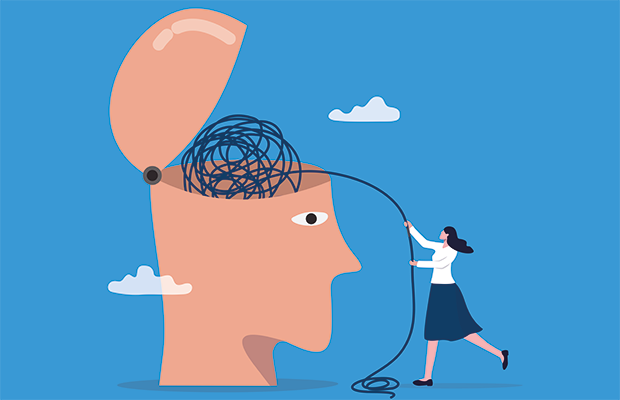Psychology AQA A PSYA2 29th May 2012!
Scroll to see replies
Thanks!
I would look at three case studies; Milgram (Sub-study within the obedience research), Oliner & Oliner (Nazi-Germany study) and Williams & Warschal (Asch go over).
Remember to talk about locus of control, interal etc and the social responsibility stuff from the above studies.
awww
 well i've finished revising the cognitive and behaviour approach as most people are predicting this as a 12 marker... then i'm going to abnormality - since it's shorter! then social influence and stress
well i've finished revising the cognitive and behaviour approach as most people are predicting this as a 12 marker... then i'm going to abnormality - since it's shorter! then social influence and stressthere was a lot of stress on jan/12 paper btw!! - but still revise everything!!!
and i'm making notes from the mark scheme - will is really useful btw!!
good luck
 xx
xxAre the two methods of coping with stress aka emotional and practical DEFINITELY no longer going to come up?

Cut out the rest, but i'll answer this bit.
By this you mean emotion focused coping and problem focused coping yes?
If so then that's still in it. Emotion focused being denial, wishful thinking, venting of emotions etc and problem focused being dealing with the problem by any positive method such as evaluating pros/cons and seeing how to move forward etc.
You could mean physical and emotional/psychological methods that are:
-Physical (Drugs/Biofeedback)
-Psychological (SIT/Hardiness training)
my teacher hasn't told me about it and my textbook is still on the old spec
can someone please give me the needed notes on it, and what sort of 12 marker can we get; also how will i answer it?


A01
•
A patient is taught a variety of relaxation techniques, such as breathing exercises, or muscle relaxation techniques
•
The patient then makes a 'hierarchy' of their phobia
•
This can be imagined, using pictures, or real life
•
The patient then goes through the hierarchy and uses the techniques so that eventually they can go through the whole hierarchy calmly
A02
•
There are quicker methods, such as flooding
•
Only good for phobias, and not for depression etc
•
Requires a lot of time/effort
•
Only treats symptoms and not causes
•
I would also compare it to drugs, for example, and mention how there are no side effects
What would you do?
 xx
xx•
A patient is taught a variety of relaxation techniques, such as breathing exercises, or muscle relaxation techniques
•
The patient then makes a 'hierarchy' of their phobia
•
This can be imagined, using pictures, or real life
•
The patient then goes through the hierarchy and uses the techniques so that eventually they can go through the whole hierarchy calmly
A02
•
There are quicker methods, such as flooding
•
Only good for phobias, and not for depression etc
•
Requires a lot of time/effort
•
Only treats symptoms and not causes
•
I would also compare it to drugs, for example, and mention how there are no side effects
What would you do?
 xx
xxPft, what you said.

Type B personality is just the opposite of Type A, so not worried about time, relaxed, not competitive and basically lazy.
I don't think Type B is that predominant, knowing about Type A and hardiness personality type should do the trick I think.
This was posted from The Student Room's iPhone/iPad App
By this you mean emotion focused coping and problem focused coping yes?
If so then that's still in it. Emotion focused being denial, wishful thinking, venting of emotions etc and problem focused being dealing with the problem by any positive method such as evaluating pros/cons and seeing how to move forward etc.
You could mean physical and emotional/psychological methods that are:
-Physical (Drugs/Biofeedback)
-Psychological (SIT/Hardiness training)
Oh dear two different answers to that bit...
Thank you to both of you though and thank you to ashmorris93 for everything else as well!


Hehe! You are gonna do wonderfully.
someone already did a few pages back hun

Would appreciate it a lot

•
A patient is taught a variety of relaxation techniques, such as breathing exercises, or muscle relaxation techniques
•
The patient then makes a 'hierarchy' of their phobia
•
This can be imagined, using pictures, or real life
•
The patient then goes through the hierarchy and uses the techniques so that eventually they can go through the whole hierarchy calmly
A02
•
There are quicker methods, such as flooding
•
Only good for phobias, and not for depression etc
•
Requires a lot of time/effort
•
Only treats symptoms and not causes
•
I would also compare it to drugs, for example, and mention how there are no side effects
What would you do?
 xx
xx
these notes are really good, if you don't mind will you be able to do them for:
outline and evaluate psychoanalysis
outline and evaluate cognitive behavioural therapy

someone already did a few pages back hun

Well that's embarrassing, hah too much effort to read through everything.
Is it going to come up same scale as Unit 1 exam?

Is it going to come up same scale as Unit 1 exam?

No. You'll get a graph maybe and a question or two on questionnaires and their use etc.
Is it going to come up same scale as Unit 1 exam?

Not on the same scale but will probably ask a couple of questions on it. But to do with stress, social or abnormality.
This was posted from The Student Room's iPhone/iPad App
Would appreciate it a lot

Behavioural- abnormal behaviour is learnt in the same way as normal Classic conditioning (learning through association). Operant conditioning (learning through reward and punishment)...Then you could use the social learning theory and learning through vicarious conditioning in which you watch others either get rewarded or punished, this is safer than learning through your own experience. Evaluation is that it's negatively reductionist, it doesn't take into account biological and other psychological factors. Therapies include systematic desensitisation which have been proven to work well, a good therapy is reflective of a good explanation.
This was posted from The Student Room's iPhone/iPad App
Thats only individual differences in independent behaviour. Stuff like resisting pressures to obey + Conform will probably still be in the test somehow.
Thank you!!

1) Tom Hates Drinking, but his friends drink too much and try to persuade him.
- Using your knowledge of Psychology explain ways that Tom might use to resist pressures put on him by his friends. (6 marks)
Plan of my Answer:
(As the command words suggest this is conformity)
- Gather group of peers who share same beliefs and attitudes of drinking being negative in order to establish a strong group identity and give tom the re-assurance to support his views. As suggested by Ash research in which conformity rates dropped when there was a dissenter who shared the same views of the true participants when choosing a comparison line answer + Normative social influence
- Take time to remind himself of why he has these views and (Aronson)
- Use internet to gather information on the negative consequences of drinking + Informative social influence will be reduced as will have gained knowledge ect (Ash & Gerald and Deutch)
Is that alright? 3 points referring to conformity and research to back-up
2) In a Hospital, you are likely to obey a nurse. However outside the hospital near a corner shop you are not.
- Using knowledge of psychology explain why (4 marks)
Plan of My Answer
- Legitimate authority (explain what that is) through the use of Power of the Uniform (Suggest by Bickham) gives nurse perceived authority but when when in normal clothes shared with individual this is lost ect
- Setting of sorroundings of Individual has changed (In Milgrams when moved to a office, obedience dropped) as percieved status of experiment when in prestidged university is lost as if the prestidge of hospital to corner shop where nurse holds no higher level of authority than individual
-
2 points and research + reffering back to question + elaborate using research
What marks would you give me?
+ what would you put?
Yeah I thought that they said individual differences in independent behaviour.
This was posted from The Student Room's iPhone/iPad App
Quick Reply
Related discussions
- A-level Exam Discussions 2024
- GCSE Exam Discussions 2024
- Awaiting decision
- surviving (hopefully) sixth form | year 12 journal
- Help For AS AQA Psychology Students
- Only answer if you’ve done these a level and exambaord
- A Level Exam Discussions 2023
- A-level Psychology Study Group 2022-2023
- a level study : BLOG
- 2024 GYG #letsbecomeacademicweapons
- how to revise for psychology a level?
- How do you learn content faster for Psychology?
- A level psychology help
- Over 500 questions on AQA Bio Unit 4 + Current Spec and old Spec papers + MS!
- AQA AS Level & A Level Psychology Paper 1 and 2 2023 May/June
- AQA Psychology a level
- What should I do if stuck between these 2 careers
- Rate my study plan (A-lvl stem student + psych)
- Alevel Psychology
- aqa a level psychology 2024
Latest
Last reply 1 minute ago
Official University College London Applicant Thread for 2024Last reply 1 minute ago
Official London School of Economics and Political Science 2024 Applicant ThreadLast reply 1 minute ago
Biology 4.1 Immunity (T cells and B cells)Last reply 6 minutes ago
want to break up with my boyfriend but i'm too ****ed up to be with anyone elseLast reply 7 minutes ago
Should I insure Warwick or Bristol for EconomicsLast reply 12 minutes ago
Official: University of Bristol A100 2024 Entry ApplicantsLast reply 14 minutes ago
I don’t know what i want to do and subject choices are coming to a closeLast reply 14 minutes ago
Would I have Student finance help if I do a Foundation Year?Trending
Last reply 5 days ago
AQA A Level Psychology Paper 3 (7182/3) - 3rd June 2024 [Exam Chat]Last reply 5 days ago
AQA A Level Psychology Paper 1 (7182/1) - 17th May 2024 [Exam Chat]Last reply 1 week ago
AQA A Level Psychology Paper 2 (7182/2) - 22nd May 2024 [Exam Chat]Last reply 2 weeks ago
Edexcel GCSE Psychology Papers 1 & 2 - 19th & 26th May 2023 [Exam Chat]Last reply 1 month ago
AQA A-level Psychology Paper 2 (7182/2) - 25th May 2023 [Exam Chat]Last reply 1 month ago
Edexcel A-level Psychology Paper 1 (9PS0 01) - 19th May 2023 [Exam Chat]Last reply 1 month ago
What is your Method to remembering AO3 Evaluation Points in Psychology?Posted 1 month ago
Marking AQA a-level Psychology Essay: Evaluate and outline the social learning theoryLast reply 2 months ago
AQA A-level Psychology Paper 3 (7182/3) - 5th June 2023 [Exam Chat]Trending
Last reply 5 days ago
AQA A Level Psychology Paper 3 (7182/3) - 3rd June 2024 [Exam Chat]Last reply 5 days ago
AQA A Level Psychology Paper 1 (7182/1) - 17th May 2024 [Exam Chat]Last reply 1 week ago
AQA A Level Psychology Paper 2 (7182/2) - 22nd May 2024 [Exam Chat]Last reply 2 weeks ago
Edexcel GCSE Psychology Papers 1 & 2 - 19th & 26th May 2023 [Exam Chat]Last reply 1 month ago
AQA A-level Psychology Paper 2 (7182/2) - 25th May 2023 [Exam Chat]Last reply 1 month ago
Edexcel A-level Psychology Paper 1 (9PS0 01) - 19th May 2023 [Exam Chat]Last reply 1 month ago
What is your Method to remembering AO3 Evaluation Points in Psychology?Posted 1 month ago
Marking AQA a-level Psychology Essay: Evaluate and outline the social learning theoryLast reply 2 months ago
AQA A-level Psychology Paper 3 (7182/3) - 5th June 2023 [Exam Chat]



